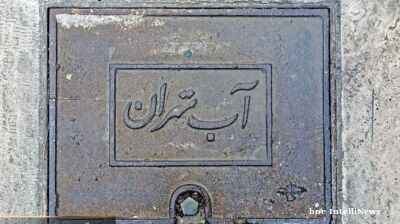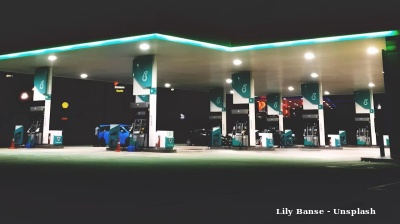Russian energy entities are experiencing financing woes, raising questions about whether Rosatom, Russia’s nuclear energy agency, will be able to fulfil its obligations to build Kazakhstan’s first atomic power plant.
Already, financing troubles have caused another Russian state-controlled firm, Inter RAO, to lose out on constructing three thermal power plants in Kazakhstan.
During a July 30 appearance before the Russian State Commission on Energy, Andrei Petrov, a top Rosatom official, openly acknowledged that Rosatom was seeking government support. The entity has the resources to complete ongoing work, but by 2027, it will need a financial injection to carry out new projects, Petrov indicated.
Rosatom officials have been somewhat cagey in specifying exactly what kind of support they are seeking and have shied away from specifying an amount. For example, Rosatom’s chief, Alexei Likhachev, recently stated that the entity is seeking the “provision of special resources” from the government, according to a report published by the Interfax news agency.
In 2024, a Rosatom official, referring to a programme to develop floating nuclear power plants, indicated that Rosatom had limited financing options due to international sanctions on Russia, and required state-subsidised low-interest loans in order for the company to maintain its industry lead in several areas. Rosatom presently enjoys a roughly 50% share of the global nuclear energy market, with operations even in several Nato member states, such as Turkey and Hungary.
“The only way to maintain leadership with this product [floating nuclear power plants] is to subsidise exports even more than we already are,” Interfax quoted Vladimir Aptekarev, a top official at the Rosatom subsidiary Atomenergomash JSC, as saying in 2024, citing Chinese competition.
The Russian government, given the immense burden on the state budget imposed by its war effort in Ukraine, has so far resisted pleas from energy entities for increased support. Rosatom officials have acknowledged that the lack of assistance has hindered efforts to build new types of thermal and nuclear units, known as units Shelf-M and Elena-AM.
The Russian government’s cash crunch appears to be responsible for delays in the construction of three planned Kazakh thermal power plants near Kokshetau, Semey and Ust-Kamenogorsk. Inter RAO signed a contract to build the three plants at an estimated cost of about $2.7bn, with financing to be provided by Russian state-connected institutions. But the money never materialised.
On July 31, Deputy Kazakh Prime Minister Roman Sklyar confirmed that Kazakhstan was ditching the contract with Inter RAO, adding that it would build the plants on its own, according to media reports.
“When the company [Inter RAO] took on the obligation to build these facilities, it was supposed to receive export financing at a low rate. Unfortunately, they were unable to do this, so it was decided to build them independently,” he said.
The Kazakh government’s decision to move on from Inter RAO on the thermal plant projects instantly sparks questions about the fate of Rosatom’s deal to build Kazakhstan’s first nuclear power station.
When Kazakhstan’s Atomic Energy Agency (KAEA) announced in June that Rosatom would lead the consortium to build the plant on the shores of Lake Balkhash, it indicated that the deal was contingent on the Russian entity’s ability to arrange financing. “Work on the issue of attracting state export financing at the expense of the Russian Federation has begun,” a KAEA statement announced at the time.
At the same time in June, Kazakh officials made the unexpected announcement that they were giving a contract to China’s National Nuclear Corporation (CNNC) to build a second nuclear power plant. At the time, observers saw the announcement as a shrewd move to keep Kazakhstan’s two powerful neighbors, Russia and China, happy. But in hindsight, the move can also be seen as a hedge.
On July 31, Kazakhstan appeared to give a vote of no-confidence in Rosatom’s ability to deliver on the nuclear plant. Sklyar, the deputy prime minister, announced that CNNC would lead construction of a third nuclear power plant in Kazakhstan. He declined to disclose a cost estimate for the projects, adding that the locations of both the second and third nuclear power stations had not been determined.
Even so, it appears Kazakhstan has a backup plan already in place in case the Rosatom deal falls through.
This article first appeared on Eurasianet here.
bneGREEN

EXPLAINER: What is the EU’s CBAM and how will it affect global trade from 2026?
The European Union’s Carbon Border Adjustment Mechanism (CBAM) will enter its full operational phase on January 1, 2026, marking a major shift in global climate and trade policy.

Iran faces critical water crisis after driest year in five decades
Iran faces critical water crisis after driest year in five decades with 40% nationwide rainfall drop.

Global renewables to double by 2030, but IEA warns momentum must accelerate
Global renewable energy capacity is on course to double by 2030, reaching 4,600 GW—comparable to the current combined total of China, the European Union and Japan—according to the International Energy Agency’s Renewables 2025 report.

South Korea’s embrace of SMRs as a pillar of nuclear policy
Spearheaded by Korea Hydro & Nuclear Power, these compact reactors are increasingly being seen as central to the nation's energy policy, offering flexibility, scalability, and ultimately a pathway to carbon neutrality




